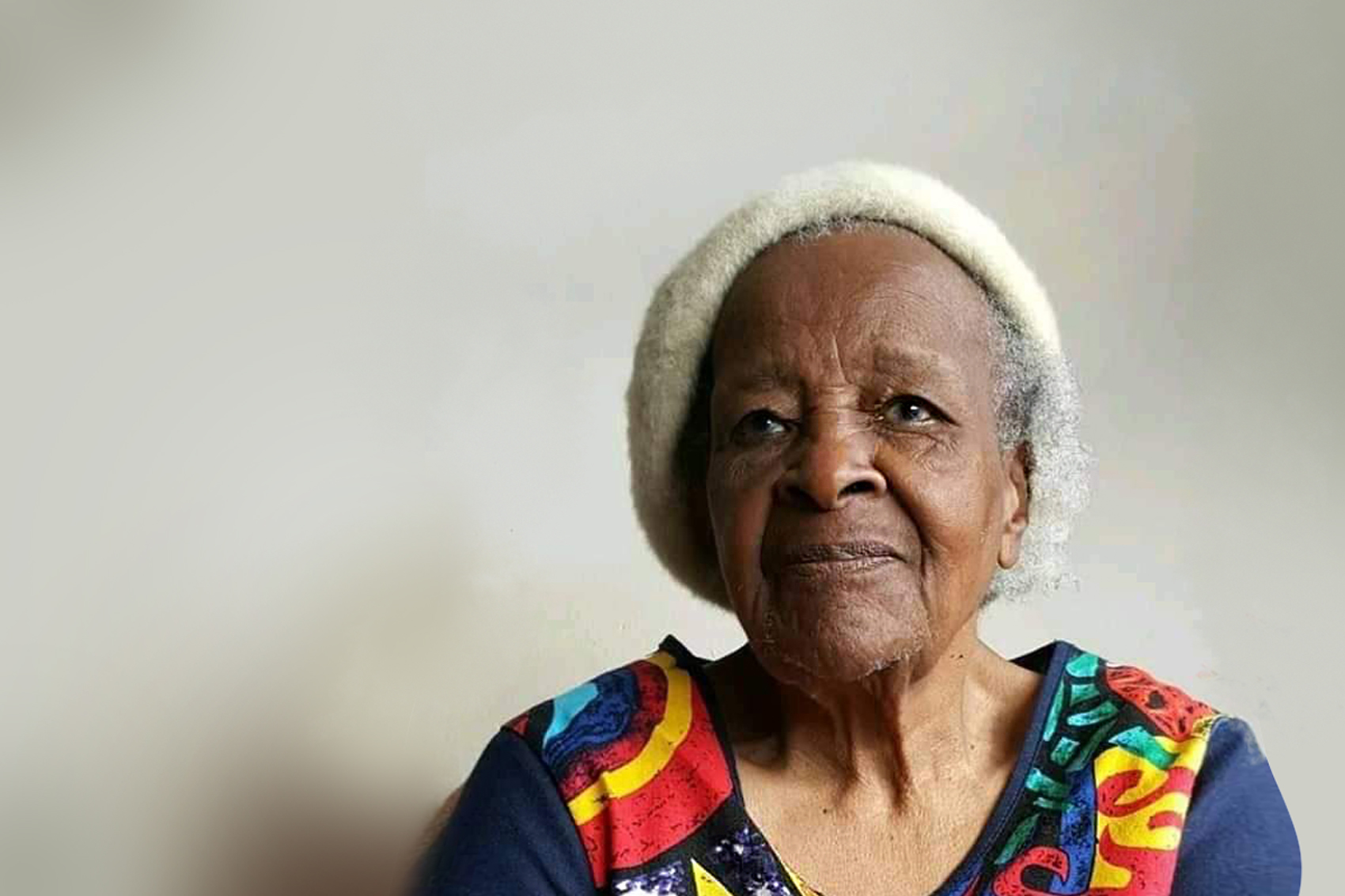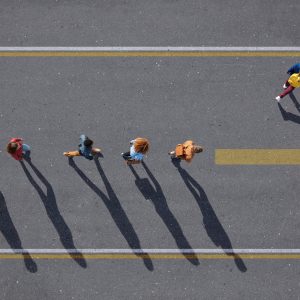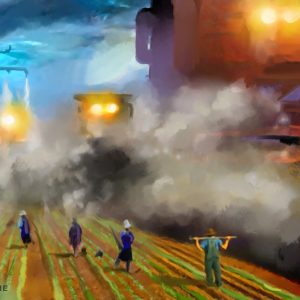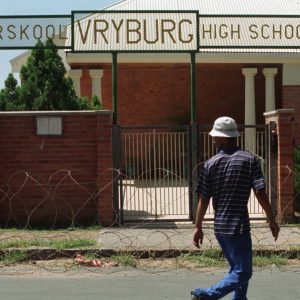Stella Madzimbamuto: Nurse, mother, freedom fighter
Madzimbamuto fought a landmark case in the Southern Rhodesian courts to get her husband out of prison, all the while raising four children and working as a respected nurse.
Author:
10 August 2020

On 30 June 2020, the nurse and freedom fighter Stella Madzimbamuto (neé Nkolombe) died in George, aged 90. It was the end of an eventful life that began on 1 Francis Street, District Six, Cape Town, but ended up in Southern Rhodesia where she challenged, in court, the legality of Ian Smith’s Unilateral Declaration of Independence of November 1965.
The cornerstone of Stella’s cosmopolitan outlook and transnational identities was laid in the Nkolombe family home, where she was the sixth of nine children. Her mother, Fleecy Gwiba, was a domestic worker, and her father, Enock Nkolombe, “a tall, clean-shaven and handsome man”, delivered orders for the British wholesaler JW Jagger. Both parents were born in the Eastern Cape and had moved to Cape Town in the 1920s, before Stella’s birth in 1930.
In her memoir, My Struggle, My Life, she explains that her parents’ friends used to chide them for living in town and not in the townships, where the majority of black people lived: “My father always explained to them that he wanted his children to grow up in town so that we could have a better education and speak both English and Afrikaans fluently.” Knowledge of these two languages of power, in addition to their home language, Xhosa, would put them in good stead “when we were looking for a job”.
Related article:
After Stella finished Standard 9, in 1946, the bright student had to drop out of school so that her sibling could also go to school (her parents couldn’t afford both of them being in school). While working as a domestic worker for a Seapoint family, a job she found unfulfilling, she was thinking of career prospects – not that she had much choice: “With a few exceptions, you had to choose to be a teacher or a nurse.”
But when she chose to study to be a nurse, it was not because this was the least undesirable of the options before her. A neighbour had a son with cerebral palsy whom the other children avoided, “but I used to go there to play with him and help out”. It wasn’t such a strange choice, as her two older sisters also studied nursing and her old brother had started studying medicine at the University of Natal (now part of the University of KwaZulu-Natal), before dropping out because of a lack of funds and switching to study for an education degree at Fort Hare.
At McCord Zulu Hospital, Durban, Stella studied for the general nursing diploma and, after finishing, enrolled for a midwifery course, which she passed with honours. She went back briefly to Cape Town where she wanted her parents to see her in full nursing regalia but had no intention of staying there. “My main reason for leaving Cape Town was the colour bar, which led to a lack of choice of where one worked because of the colour of one’s skin.” Already she was showing her feisty side by refusing to apply for a pass. Later, her older sister Mary would be part of the women’s march in August 1956 to Pretoria.
Becoming Zimbabwean
While she was employed at Ladysmith Provincial Hospital she met Daniel Madzimbamuto, a Southern Rhodesian who was then working as a publicity officer for Boswell Wilkie Circus. He was in Durban to create interest in the circus when, as Stella and a friend were out on a walk, he stopped his van and offered the two women a lift. It was a fortuitous encounter. Around this time, Stella was already feeling professionally stifled and was looking to leave, perhaps for England to study and work there for a while.
After a couple of dates, “Dan dropped a bombshell. He asked me to marry him.” Marriage was something she hadn’t thought about: “I doubted I could cope with married life as I had not yet sorted myself out.” But as these thoughts whirled in her head, she discovered she was pregnant and the unlikely prospect became real. She agreed to marry Daniel, the man raised in Murehwa, a rural area north of Salisbury (Harare). Stella’s mother, wondering about the practical implications of her daughter’s choice, which entailed moving to rural Southern Rhodesia, remonstrated: “Stella, you cannot even carry a bucket of water on your head and that is what you’re going to do twice a day”; while her father, referring to another daughter who had married a Kenyan, was a tad nativist, and remarked: “You have all decided to marry men from the north, what was wrong with the men of South Africa?”
As Daniel was still contractually tied to the circus, Stella travelled on her own by train to Salisbury and then made the 100km journey to Murehwa by bus where she was rapturously met by her in-laws. Daniel’s relatives realised that their muroora, daughter-in-law, had grown up differently and didn’t involve her in the heavy chores of working the land. But with time, her interest in working the land grew until she had a field of her own: “I wanted to get involved and feel ownership of my own piece of land,” she writes.
Related article:
When she was due for delivery, in 1956, she was taken to Harare Hospital, a teaching hospital in Salisbury’s south known popularly as Gomo (it is on a mountain), where she met some nurses she had trained with at McCord Zulu who had also married Southern Rhodesians. They told her Southern Rhodesia was in desperate need of nurses and that she should consider getting a post, but she told herself, “My baby was still too small.”
A fellow former student told the matron of the hospital that there was an alumnus of the school who had just given birth at the hospital who wasn’t working. Stella was tracked to Mabvuku, a township towards Salisbury’s east, where she was staying with her husband’s relative, and was offered a post at the hospital. Despite her reservations – her baby was too small to be left alone – she took the job, but soon tensions at home and the long commute were making her life intolerable. She proposed to the matron – a proposal she agreed to – that she bring the baby to work. “Fortunately, Farai slept calmly through the night most of the time.” Stella’s first born, Farai, perhaps not surprisingly for someone for whom a hospital was something of a second home, later trained to be a medical doctor and specialised in anaesthetics. He is now an associate professor and head of the department of anaesthetics and critical care at the faculty of medicine at the University of Botswana.
As a portent of the single motherhood ahead of Stella, Daniel left his employment in South Africa and first saw his son when he was already seven months old. As Daniel was getting sucked into nationalist politics, Stella was getting deeply involved in neurosurgery. A British nurse who was working in the ward run by the pioneering neurosurgeon Lawrence Levy – then the only neurosurgeon in all of Africa – decided to return home but none of the nurses at the hospital wanted to take over her job because of the responsibilities it entailed.
Related article:
Stella bravely took on the onerous job, and became a student to Levy until she was so good she could carry out medical procedures nurses didn’t ordinarily perform. “He always retained the overall responsibility for my actions, but he also gave me the skills and the confidence to learn to carry out medical procedures like lumbar punctures.” (A lumbar puncture is a diagnostic procedure in which a needle is inserted into the spinal canal.)
So accomplished did Stella become at it that when Levy was away seeing patients across the city, “it was I who taught junior doctors how to carry out lumbar punctures”. Stella reminds me of Hamilton Naki, the assistant to the pioneering cardiologist Chris Barnard, who performed the first successful heart transplant. Naki became so skilled at his job that Barnard said of him, “A liver transplant is much more difficult than a heart transplant. … [Doctors who work with Naki] tell me that Hamilton can do all the various aspects of liver transplantation, which I can’t do. So technically, he is a better surgeon than I am.”
Unlike Naki, whose expertise was only grudgingly accepted, surgeons and other doctors who worked with Stella recognised her expertise decades ago. “She had to teach me how to do a lumbar puncture, then air encephalograms and myelograms,” said John Axton, a British doctor who worked at Harare Hospital between 1962 and 1964.
As Stella was excelling in her profession, her husband’s nationalist politics – being chair of the Highfield branch of the African National Congress, holding meetings and travelling up country for commissariat work – was getting him into trouble with the Rhodesian authorities. In the names of the couple’s four children – Farai, Chipo, Tambudzai and Tafirenyika – you can see Southern Rhodesia’s right-wing slide, its obdurate march into a racist apocalypse. Farai is an optimistic Shona name, which means “Be happy”; Chipo is Shona for “Gift”; “Tambudzai” means “They are troubling us” or “You are causing us problems”; and in the last born, Tafirenyika, a phrase-name that means “We are dying for the country”, you see the desperation and resolve in the nationalist movement.
A landmark case
The first time Daniel was detained was in 1959 and, as a South African, Stella worried the spiteful Rhodesian state might punish her to restrain her husband. “I worried that if Dan was arrested I might be deported. I worried that my in-laws might take the children.” When Daniel was first locked away, Stella was optimistic that he would be quickly released. “I expected Dan to be home every day… every night I left food for him in case he returned.” He was released four years later, in 1963, but was soon arrested as a member of the Joshua Nkomo-led Zimbabwe African People’s Union.
Why didn’t she just go back home? “Well, going to Cape Town was not going to solve anything for me because South Africa was fighting its own battle,” Stella writes. “Besides, I couldn’t go back home with my husband languishing in a prison or detention centre.”
Despite her fears, when Ian Smith announced independence on 11 November 1965, Stella took on the state in a landmark case that challenged the constitutional right of Southern Rhodesia, an illegally constituted state, which had rebelled against Britain by unilaterally declaring independence, to detain her husband. Together with nationalist lawyer Leo Baron, she bravely filed a motion on behalf of her detained husband. Naturally, Stella lost the case in the Rhodesian court system but was successful when she took it on appeal to the Privy Council in the United Kingdom.
“Of the great cases decided since World War II, few can surpass the Rhodesian case of Madzimbamuto and Another in interest,” said HR Halho, a South African law professor. “The legal problems raised in argument will be discussed with emotive heat or academic detachment for years to come until they find permanent resting place in the standard works on constitutional law, public international law and jurisprudence.” In fact, a key part of the 1979 Lancaster House Conference agreement was to restore Southern Rhodesia to legality, that is back to the Commonwealth, which paved the way for the appointment of Governor Lord Soames to be the Queen’s top representative, and democratic elections in February 1980. This is what Stella and Baron’s case had gestured towards – a whole decade and half before the events of 1979.
Related article:
By the time Daniel died in 1999, the couple had been estranged for almost two decades (Daniel had another relationship when he came out of detention, in 1974, after a cumulative detention of some 17 years.) Stella refused to be part of a polygamous setup: “My heart was broken. I felt a deep sense of loss.”
As Stella’s sight began to fail her – she had a blockage of a blood vessel – and she suffered from osteoporosis, she struggled to finish her memoir in Cape Town, where she moved in 2003 to live with her youngest son, the chemical engineer Tafirenyika and his family. Moving back to Cape Town after such a long time – 47 years in total – after her and Daniel’s contribution to the struggle for freedom in Zimbabwe, was “more bitter than sweet”, because, as she writes, “a part of me will remain in Zimbabwe for all eternity”.
Zimbabweans and, indeed, other freedom-loving people should reciprocate by holding Gogo Stella Nkolombe Madzimbamuto in their hearts because of her exemplary life – leaving the relative comfort of Cape Town to live deep in the rural areas of Southern Rhodesia; contributing to medicine and nursing in Zimbabwe; fighting for the release of her husband and standing up to Smith; and raising four children virtually on her own.




